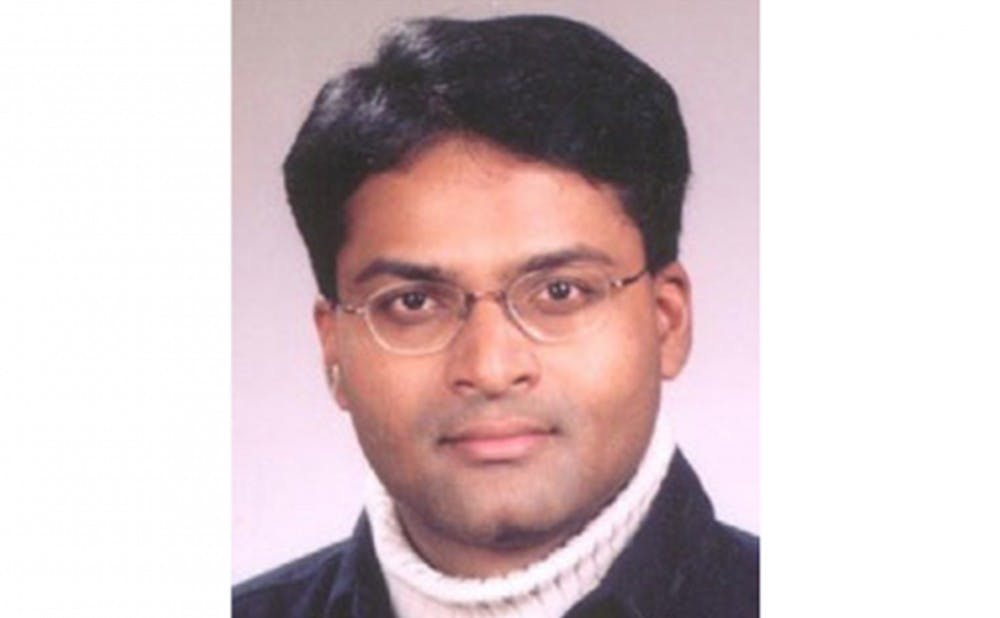More than five years after investigations into cancer researcher Dr. Anil Potti began, the Office of Research Integrity is providing some measure of closure to the widely publicized scandal.
In a report published in the Federal Register Monday, the federal government’s Office of Research Integrity—which oversees scientific misconduct investigations of government-funded research—included in its findings that Potti had “engaged in research misconduct” by falsifying data sets that subsequent clinical trials were based on. As part of the ORI’s sanctions, Potti has agreed to have supervision for any NIH-funded research he conducts in the next five years.
“I think the important thing about this is not so much the sanction—the important thing is the finding. This now makes it clear that there was fraud involved,” said Ivan Oransky, co-founder of Retraction Watch, a website which tracks research misconduct and which first reported the news. “Although some people have speculated...until now we never used the word ‘fraud’ when it came to Anil Potti because the investigation was not complete and no one had officially ruled. But now the feds have ruled—there was misconduct.”
In May, the University agreed to a confidential settlement for lawsuits brought by families of patients who were involved in Potti’s clinical trials. The ORI’s report, however, marks the first official conclusion that Potti did indeed engage in the research misconduct which he has been accused of since 2010.
Potti’s research involved using genomics to predict cancer patients’ responses to drugs and to personalized cancer therapies. According to the report, Potti stated in a grant application to the National Cancer Institute that six out of 33 patients in his tests responded positively to a cancer drug, when only four patients were enrolled in the trial and none showed a response to the drug. Another example of misconduct was his falsification of data sets to improve how accurate certain predictors of treatment responses seemed to be.
As a result, nine papers from various journals authored by Potti have been retracted over the past five years.
“We are pleased with the finding of research misconduct by the federal Office of Research Integrity related to work done by Dr. Potti,” Michael Schoenfeld, vice president for public affairs and government relations, wrote in an email Sunday. “We trust this will serve to fully absolve the clinicians and researchers who were unwittingly associated with his actions, and bring closure to others who were affected.”
Potti entered into a “voluntary settlement agreement,” meaning he neither admitted nor denied that he had committed scientific fraud. This is “not an admission of liability” on his part, the report stated.
Oransky compared this agreement to a plea bargain that would happen under a criminal case.
“A lot of people are puzzled as to why people get off with such light sanctions,” Oransky said. “The answer is...if you have a vigorous defense, which everyone is entitled to in a criminal case, not every sentence is as severe and that’s because we have due process, plus the fact that the ORI has no criminal power.”
As part of the voluntary agreement, Potti has accepted sanctions from the ORI, which stipulate that if he receives funding from the U.S. Public Health Service—including the NIH—within the next five years, his research must be supervised. This supervision plan must also be approved by the ORI beforehand.
The report stated, however, that Potti “has no intention of applying for or engaging in PHS-supported research or otherwise working with PHS.” Oransky noted that Potti has not been conducting government-funded research since investigations started in 2010 and he resigned from his position at Duke.
“The sanction—it’s a bit empty because it doesn’t seem likely that he’s ever going to do research again. At the same time, it is some sanction and it puts something on the [Federal] Register,” Oransky said. “Within the range of options it’s on the light side—but it is actually a sanction, as opposed to most people who commit misconduct who don’t get any sanctions.”
The lawsuits against the University and Potti were settled earlier this year, and the ORI’s report wraps up official investigations into Potti’s scientific misconduct. Once the researcher accepts sanctions, it is considered “case closed,” Oranksy noted.
Questions do remain on how the University mishandled the Potti case, and whether administrators ignored a whistleblower in 2008.
“I don’t think they can ever do enough soul searching about why they allowed this to continue even though they were warned about this,” Oranksy said. “But it’s less important than what Duke does going forward. What is Duke going to do next time a whistleblower comes forward? Are they going to ignore that person and quiet him?”
Issues with research integrity have not been limited to Anil Potti. A string of papers by a group of Duke pulmonary researchers—one of whom was charged with embezzling more than $14,000 from the University—were recently retracted after “inconsistencies” were found in their data.
“[Research integrity issues are] not something that begins or ends once this case is decided—it’s something Duke has to deal with forever,” Oranksy said.

